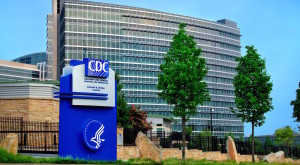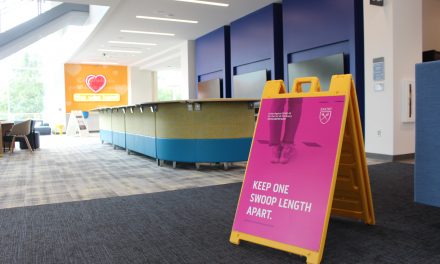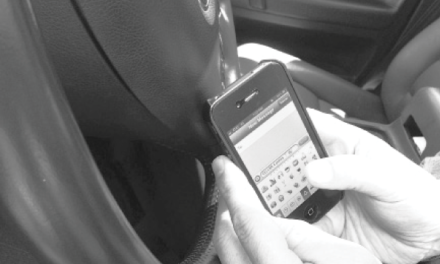A Rollins School of Public Health research team received nearly $7.5 million from the Centers for Disease Control and Prevention (CDC) to further train public health workers in West Africa, according to a Feb. 24 University press release.
“We are about building local capacity, while respecting national sovereignty and supporting the needs of the people in the region,” Scott McNabb, leader of the Rollins team and research professor at the school, said. “It is not enough to come into a country and tell people what to do because after the experts go home, people revert back to their original ways.”
One of the major goals of the Rollins team is to establish The African Centre of Excellence for Public Health Security, a building in West Africa that will serve as the regional headquarters for health safety preparedness. The plan comes after the widespread outbreak of Ebola in mid-2014 in Sierra Leone, Liberia and Guinea.
[quote_box name=””]“We are providing capacity so that the African people can be much more prepared in the future than they were in the past” -McNabb[/quote_box]
“If a pandemic like this swept through Georgia, you could imagine the chaos and disruption of normal health services, and that is what is happening right now,” McNabb said. “Our intention is to come to West Africa, now that we are starting to contain this disease, and help rebuild.”
McNabb and his team are one part of Emory’s multi-faceted response to Ebola. Earlier this month, Emory hosted a conference and held a panel to provide platforms for the ongoing Ebola discussion. In fall 2014, Emory University Hospital served as a treatment facility for four Ebola patients.
“As the Ebola outbreak in West Africa has shown, improving health security in countries around the world is of utmost importance,” wrote CDC Health Communications Specialist Justin Williams in an email to the Wheel. “Until countries have the ability to prevent, detect and respond to infectious disease threats, all countries are at risk.”
Unlike most financial partnerships, this initiative’s goal is to improve the public health capacity of Africa, not of Emory, according to McNabb. Of the $7.43 million, 45 percent is going directly to Africa.
McNabb and his team were one of six awardees. Emory was approved for funding based on their rank score from an objective review panel, according to CDC Extramural Affairs Specialist Herbert Kimble.
One major goal for the African Centre is to build a strong workforce that can respond to public health threats. According to McNabb, the affected West African countries lacked the organization to provide adequate health systems and trained personnel, creating the outbreak last year.

The Centers for Disease Control in Atlanta.
Some of the public health issues of global concern in West Africa include emergence and re-emergence of pathogens, development of drug resistance and accidental laboratory pathogens, McNabb explained.
By 2013, more than 100 World Health Organization (WHO) members had not met the WHO’s International Health Regulations (IHR) requirements regarding public health concerns. The African Centre’s goal is to help African countries meet these requirements by “providing in-country training for public health professionals in the areas of surveillance, epidemiology, laboratory, communications, infectious disease and preparedness,” McNabb said.
According to McNabb, he is hopeful that the center will be a landmark institution, influencing African policy and public health.
The first two years of the five-year program are focused on working with local partners across Africa to meet their training needs while the last three years of the project will be devoted to establishing the African Center — a facility that will sustain the training needs for public health professionals in West Africa.
The program aims to provide urgent training to public health officials in systems including e-surveillance, a technique that uses technology such as mobile phones to provide public health data. This will digitize African analog health systems.
According to McNabb, the project will also include training in communications, epidemiology, outbreak investigations and data analysis.
“This will allow health workers to better understand the situation, which is a key piece of the program,” McNabb said.
The partners include Rollins School of Public Health, the African Field Epidemiology Network, the International Association of National Public Health Institutes, Emory’s Institute for Developing Nations and the African Society for Laboratory Medicine.
“Going forward, this puts us at the forefront of a very hot topic and allows us as a University and as a school to build on what is already a growing reputation from our treatment of the Ebola patients,” Chris Hoover, a student in the Rollins School of Public Health, wrote in an email to the Wheel.
Digital Editor | Brandon Fuhr is a College junior from Briarcliff Manor, New York pursuing a triple major in art history, forensics, and nuclear neuroscience. Jokes. This kid is straight Business School material. When he isn't studying Corporate Finance, you can find him spinning, playing FIFA or at Chic-Fil-a (or all three at once). He is a Digital Editor for the Wheel and works to create digital features and ensures the website is fully functioning. More importantly, he is responsible for ensuring no Wheel editor goes home hungry. Orchestrating meals for a group of 20 college kids is no easy feat, but he strives to never disappoint.







